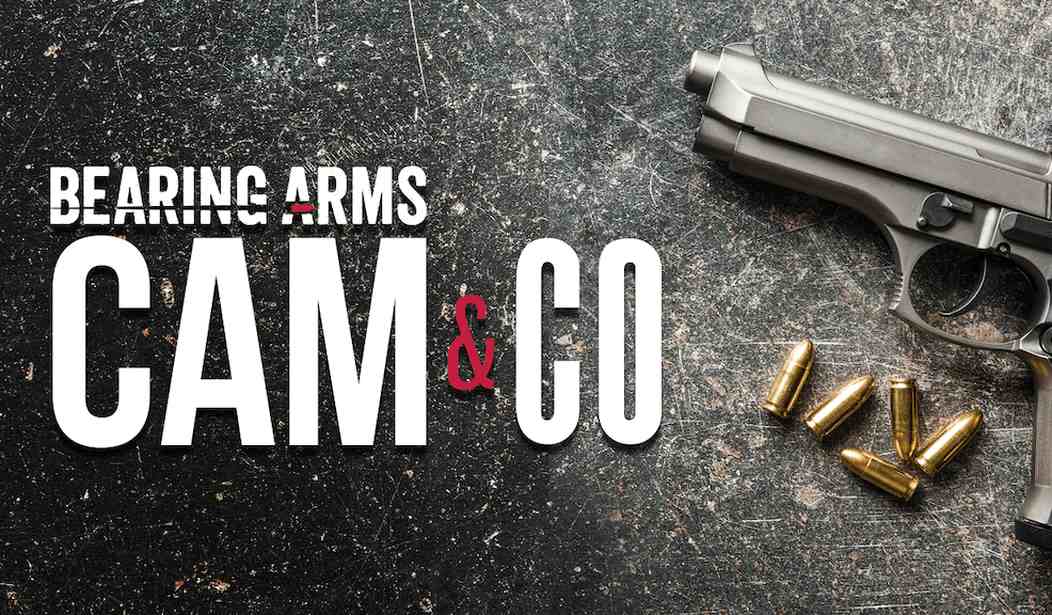Coloradans with concealed carry licenses could soon find themselves unable to lawfully carry almost everywhere in the state, thanks to a bill currently being drafted that would create a huge number of “gun-free zones”. As FASTER Colorado’s Laura Carno tells Bearing Arms Cam & Co, the bill would not only curtail the right to carry in many public places but would prohibit school districts from adopting (or keeping) policies allowing for armed school staff as well.
That would impact hundreds of school employees in dozens of districts across the state, not to mention the thousands of students who are protected by that extra layer of security. Carno says about 60 percent of the school districts in Colorado that have armed school staff in place are located in rural counties where law enforcement is stretched too thin to provide dedicated school resource officers, and the few deputies on patrol at any given time may be a half-hour or more away from a school.
Unlike “carry killer” bills approved in states like New York, Maryland, and California, the draft bill in Colorado isn’t an attempt to get around the Bruen decision by imposing new “gun-free zones” to compensate for the demise of “may-issue” carry laws. Colorado has long been a “shall issue” state, and according to the Crime Prevention Research Center, Colorado has the third-highest percentage of the adult population with a carry license, with more than 15 percent of adults possessing an active CCW. If the draft legislation is approved in its current form, those gun owners would be prohibited from carrying in a wide variety of newly designated “sensitive places”, starting with the ability to have a firearm in the permittee’s vehicle on school property as well as carrying a concealed handgun on school property while on duty as a school security officer.
Other banned locations include:
- Public parks and playgrounds
- Community and recreational centers
- Property where a public gathering is taking place (as well as adjacent streets and sidewalks)
- Hospitals and healthcare facilities
- Banks and other financial institutions
- Houses of worship
- Stadiums and arenas when sporting events are taking place
- Amusement parks, aquariums, museums, zoos, carnivals, and fairs
- Libraries
- Homeless shelters
- Daycares and pre-schools
- Public and private universities, colleges, and community colleges
- Buildings and adjacent grounds of all state and local government-owned property
- Any location where a state or local government meeting is being held
Currently, the only “gun-free zones” established by state law are state legislative offices, meeting rooms, and chambers; public buildings where security personnel and electronic screening devices are permanently in place at each entrance, each person entering the building is screened, and persons carrying weapons are required to leave them with security while in the building; and public transportation facilities. The open carrying of firearms in polling locations and within 100 feet of a dropbox is also prohibited, but the draft legislation would expand that to include concealed carry as well.
The bill, at least in its current draft form, would completely upend Colorado’s carry laws and make it almost impossible for lawful gun owners to bear arms in the course of their daily routine. And while the bill may be subject to change before it’s formally introduced, that doesn’t mean any revisions will benefit gun owners. Unlike California and New York’s carry-killer bills, the draft legislation in Colorado doesn’t ban firearms in establishments where alcohol is served, nor does it impose a “vampire rule” banning guns from all private property without the express consent of the property owner. I could see those restrictions added on to the bill, either before it gets its first committee hearing or during its journey to the House and Senate floor.
Carno reminded me that in 2013, as lawmakers were debating “universal” background checks and bans on “large capacity” magazines, ten thousand gun owners turned up both inside and outside the state capitol building to voice their objections. Those who couldn’t make it into the committee rooms to testify in person protested on the grounds outside, as well as on nearby streets, where hundreds of gun owners drove their cars around the capitol complex honking their disapproval of the bills.
Those protests didn’t stop the anti-gun bills from being signed into law by then-Gov. John Hickenlooper, but the passage of that legislation did result in two state legislators being recalled by ticked-off constituents. The onslaught of anti-gun bills introduced and being drafted in Denver this year is even worse than what was approved a decade ago, and is certainly worthy of more large-scale protests at the capitol. A recall might be tough to pull off in an election year, but representatives and senators should still be feeling the heat from the voters in their districts while there’s a chance to stop these terrible ideas from being enshrined into state law.








Join the conversation as a VIP Member